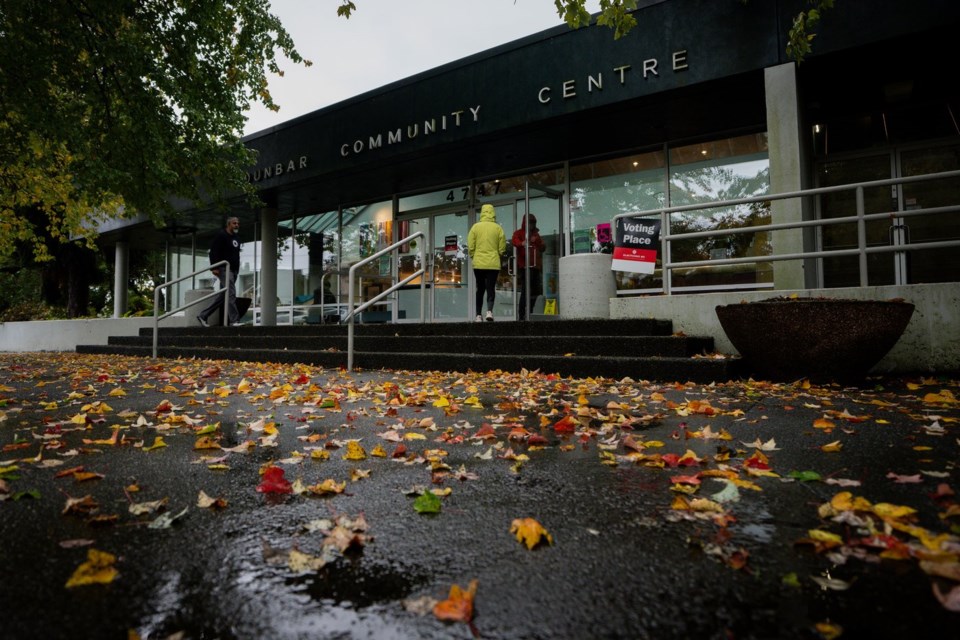Recounts may not change election results very often, but British Columbia political scientist David Black says they play an increasingly vital role in demonstrating election integrity.
"There is the quality control, the quality assurance, the self-correcting nature of our of our system showing up and demonstrating that it works," said Black, an associate professor at Greater Victoria's Royal Roads University.
Premier David Eby's NDP claimed victory on Monday in B.C.'s Oct. 19 election, but the counting isn't over.
Two judicial recounts were triggered at the end of the "final count," by an NDP candidate's 27-vote victory margin in Surrey-Guildford, and a Conservative candidate's 38-vote win in Kelowna Centre.
Elections BC says district electoral officers must apply for a judicial recount if the margin of victory is within 1/500th of all ballots considered in the riding.
Recounts are conducted by a B.C. Supreme Court judge and may include all or some of the ballots in an election.
Elections BC said in a written response that the timing of the recounts would be up to the presiding judge.
Black said hand recounts were originally needed to check for human error in manual tabulation.
But Black said the need for recounts has not diminished with the advent of digital and machine counting. Instead it has increased, with the rise of voter skepticism about technology that is not well understood.
Recounts — done by hand with human scrutineers present, visibly verifying each ballot — are the "most visible and public-facing parts" of an election operation to assure the public that their votes are being counted accurately, he said.
"At the end of the day, democracy is an act of faith," Black said. "We had two million-plus people vote in this last election in B.C., and democracy is kind of a black box. You vote, the machine does its work, and out comes a result which has a significant effect on your life.
"The distance between your vote — among two million — and that government on the other side, it's a long one. And it's one that really depends on you trusting that our non-partisan elections administration …(are) doing the work of ensuring that integrity."
There have already been three hand recounts in the B.C. election and they did not have much impact.
Full recounts were triggered in Juan de Fuca-Malahat and Surrey City Centre because the NDP was leading by margins below 100 after the initial count.
But the recounts only saw the tallies shift by a few votes, and by the time mail-in and absentee votes were complete, the NDP had won Juan de Fuca-Malahat and Surrey City Centre by 141 votes and 236 votes respectively.
A partial recount was also conducted in Kelowna Centre, reducing the Conservative lead by four votes. The party still won by 38 votes, although the judicial recount has now been triggered.
History also shows that overturning a B.C. election count isn't common.
In 2020, a judicial recount was held in West Vancouver-Sea to Sky, where BC Liberal candidate Jordan Sturdy was ahead by 41 votes. The recount increased his victory margin to 60.
In 2013, a recount was triggered in Coquitlam-Maillardville where the NDP’s Selina Robinson was ahead by 35 votes; she ultimately won by 41 votes.
There were no judicial recounts in 2017.
Former Independent Delta South MLA Vicki Huntington agreed that it's unusual for recounts to change election outcomes.
But she has firsthand experience that, very occassionally, they do.
In the 2009 B.C. election, Huntington was behind by two votes in the initial tally. A judicial recount found that she had won by 32 votes.
"Obviously, recounts matter," Huntington said.
"I think you will always want that opportunity to recount, because ultimately you never ever know, has somebody managed to impair a machine or is a machine impaired? So, that recount has to be by a human being as a double-check on the efficiency of machinery."
Huntington said it may take B.C. a few more elections under digital tabulation to "really have a sense of how machines will have changed the process."
For Black, the need for electoral authorities to show their processes in a transparent fashion has only grown, given the "hyper politicization" of election logistics.
He said statements of faith in the B.C. election process by Conservative Leader John Rustad and others showed that mistrust in the province had not reached the level seen in the United States.
But he said agencies such as Elections BC need recounts as visible evidence that administrators look for — and fix — mistakes.
"That's where the system is self-correcting," Black says. "That's where the system is demonstrating to the public its integrity in a visible way. "
This report by The Canadian Press was first published Oct. 30, 2024.
Chuck Chiang, The Canadian Press

